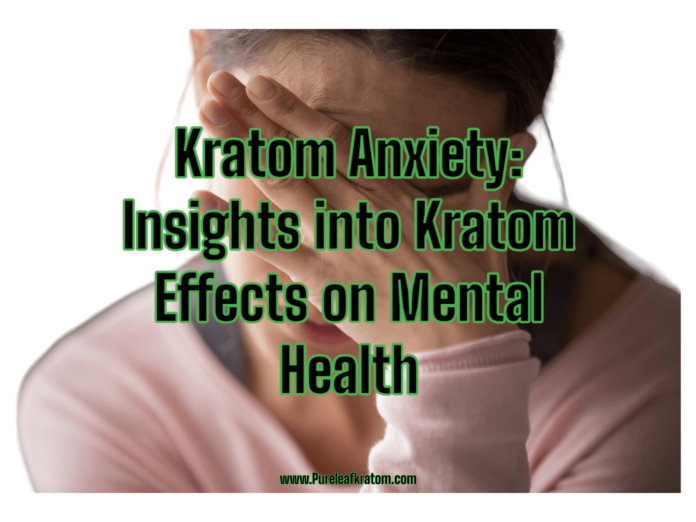Kratom (Mitragyna speciosa) is a tropical tree native to Southeast Asia, particularly Thailand, Malaysia, and Indonesia. Traditionally, the leaves of the kratom tree have been used for their stimulant and sedative effects, depending on the dosage. In recent years, kratom has gained popularity in the Western world, often marketed as a natural remedy for various health issues, including pain, opioid withdrawal, and mental health conditions such as mood disorders and anxiety. However, the effects of kratom on mental health are complex and not fully understood, warranting a closer examination of its benefits and risks.
The Pharmacology of Kratom
Kratom contains several active compounds, with mitragynine and 7-hydroxymitragynine being the most notable. These alkaloids interact with opioid receptors in the brain, which explains kratom’s pain-relieving and mood-altering effects. At lower doses, kratom acts as a stimulant, increasing energy, alertness, and sociability. At higher doses, it has sedative effects, promoting relaxation and pain relief. This dual action makes kratom a unique substance with the potential for both therapeutic benefits and adverse effects.
Kratom’s Effects on Mood
One of the primary reasons individuals use kratom is its purported ability to enhance mood. Users often report feelings of euphoria, increased motivation, and an overall sense of well-being after consuming kratom. These effects are primarily attributed to the activation of the brain’s reward system, similar to how opioids and other drugs of abuse work. However, unlike traditional opioids, kratom is thought to have a lower potential for addiction and respiratory depression, although this is still a subject of ongoing research.
Some studies and anecdotal reports suggest that kratom can be beneficial for individuals suffering from depression. By activating opioid receptors, kratom may help alleviate depressive symptoms and improve mood. However, it is crucial to note that the evidence supporting kratom’s antidepressant effects is mostly anecdotal and lacks rigorous scientific validation. The variability in kratom’s composition and the absence of standardized dosing further complicate the assessment of its efficacy and safety for treating depression.
For those interested in exploring buying kratom edibles, a variety of options can be found at reputable vendors like Hypnokratom.
Kratom and Anxiety
In addition to its mood-enhancing properties, kratom is also commonly used to manage anxiety. The sedative effects of higher doses of kratom can produce a calming effect, reducing symptoms of anxiety and promoting relaxation. Some users have reported using kratom as an alternative to prescription anxiolytics, such as benzodiazepines, which are associated with significant side effects and a high potential for dependence.
While there is some anecdotal evidence supporting kratom’s use for anxiety, scientific research in this area is sparse. The existing studies are primarily preclinical or observational, lacking the rigor of controlled clinical trials. Moreover, the anxiolytic effects of kratom can vary significantly depending on the dose, strain, and individual response, making it challenging to draw definitive conclusions about its efficacy and safety for anxiety treatment.
Potential Risks and Side Effects
Despite the potential benefits, kratom use is not without risks. The most common side effects include nausea, constipation, dizziness, and dry mouth. At higher doses, kratom can cause more severe side effects, such as confusion, hallucinations, and respiratory depression. Chronic use of kratom has been associated with dependence and withdrawal symptoms, including irritability, insomnia, and muscle aches, which can complicate its use for mental health purposes.
There is also concern about the potential for kratom to interact with other medications. Given its opioid-like effects, kratom can potentiate the effects of other central nervous system depressants, increasing the risk of adverse outcomes. Furthermore, the lack of regulation and standardization in the kratom market raises concerns about product quality and contamination, which can pose additional health risks to users.
Conclusion
Kratom is a complex substance with a range of effects on mood and anxiety. While some users report significant benefits for managing depression and anxiety, the scientific evidence supporting these claims is limited and often anecdotal. The variability in kratom’s effects, coupled with the potential for side effects and dependence, underscores the need for more rigorous research to fully understand its risks and benefits. As with any substance, individuals considering using kratom for mental health purposes should do so with caution and under the guidance of a healthcare professional. Given the current state of knowledge, kratom should be approached as a potentially useful but not fully understood tool in the management of mood and anxiety disorders.



